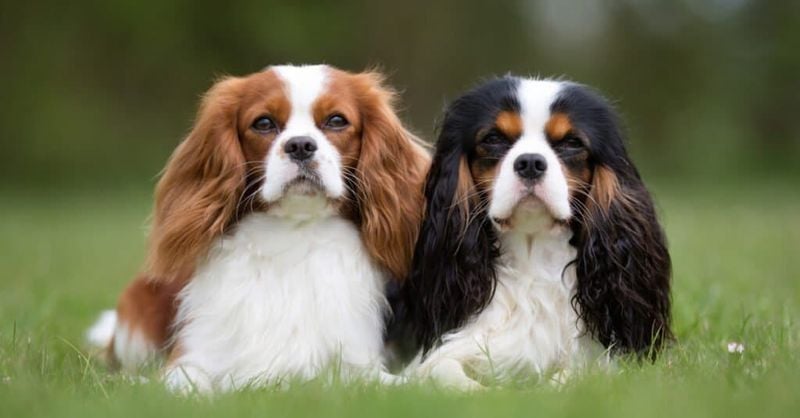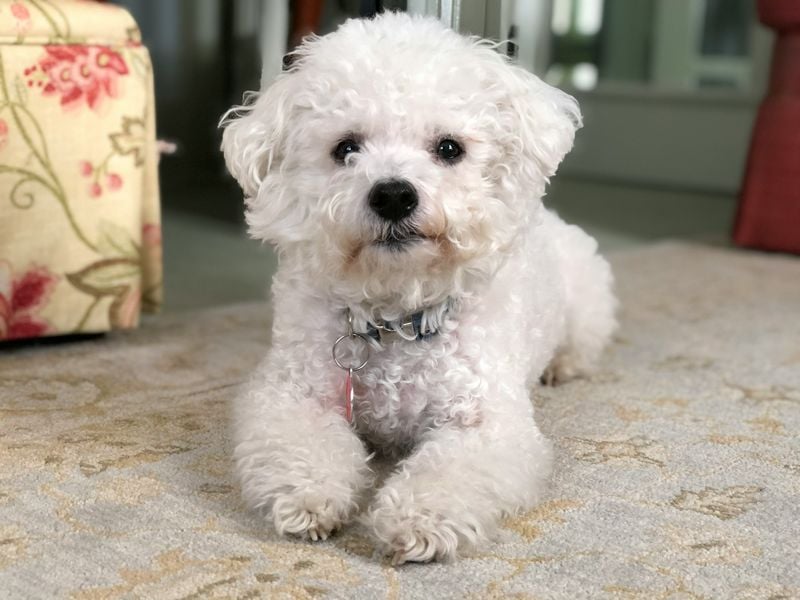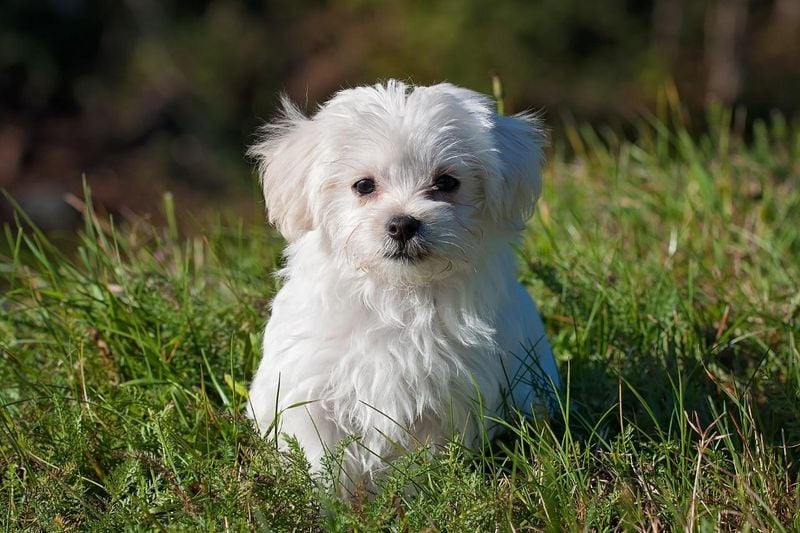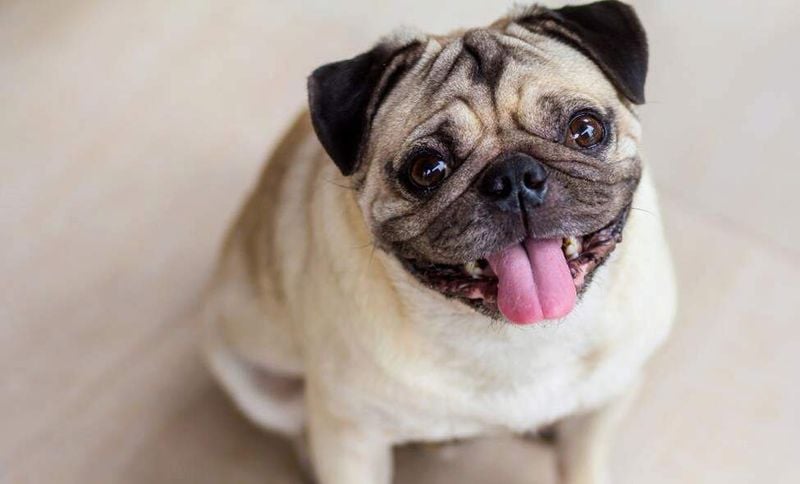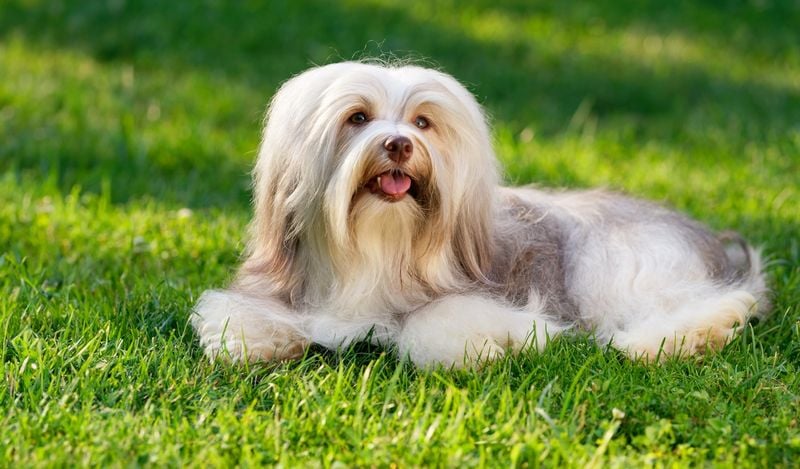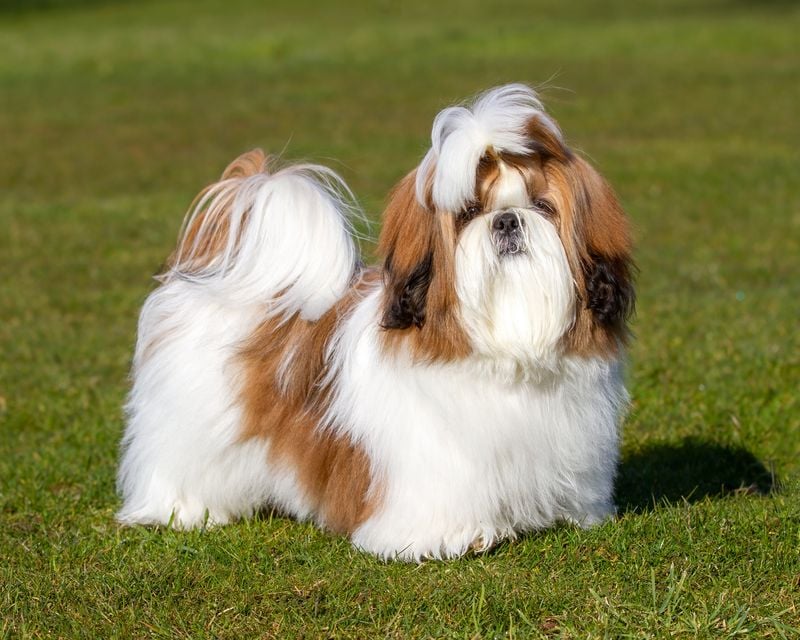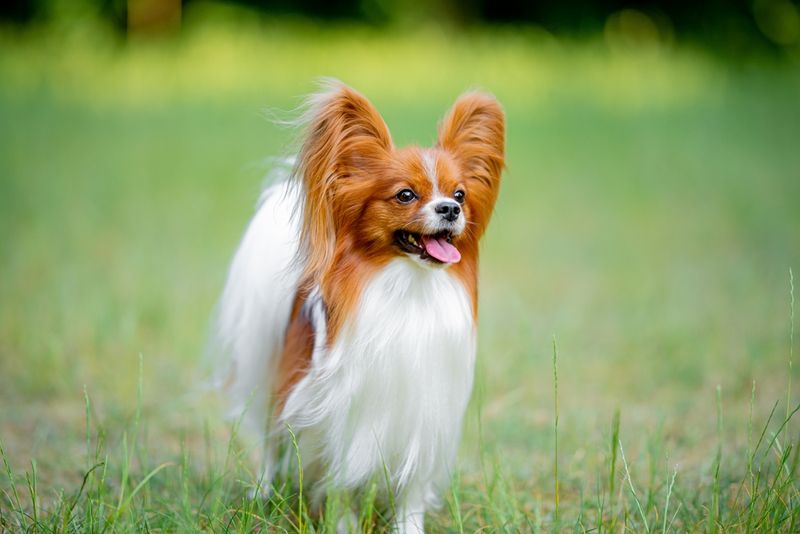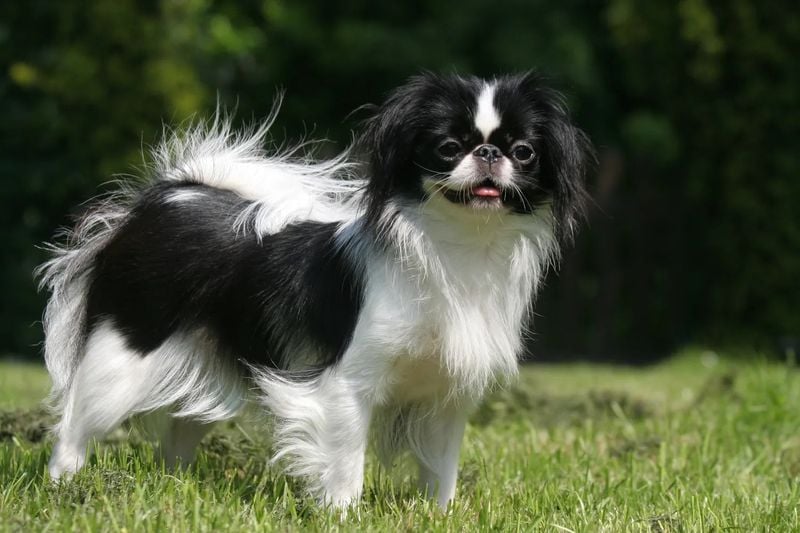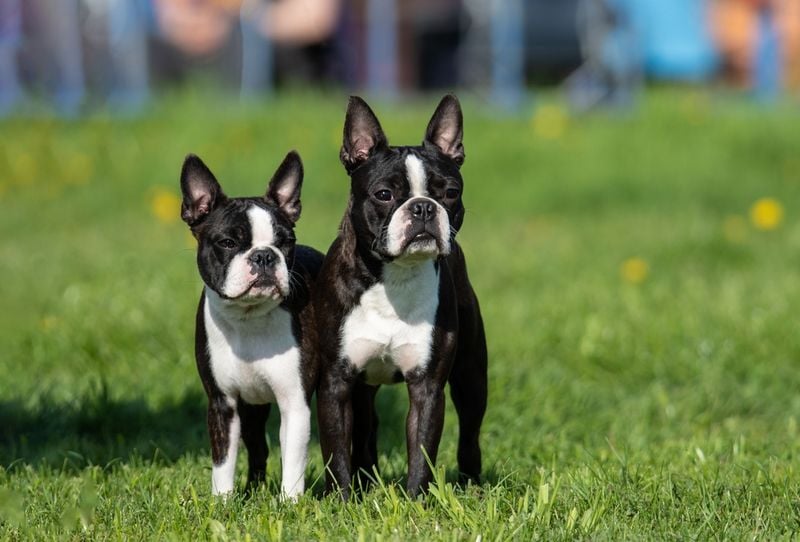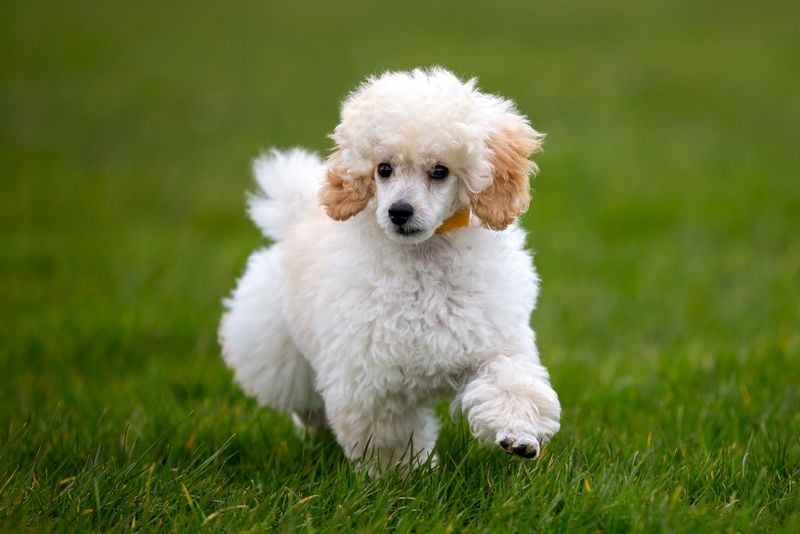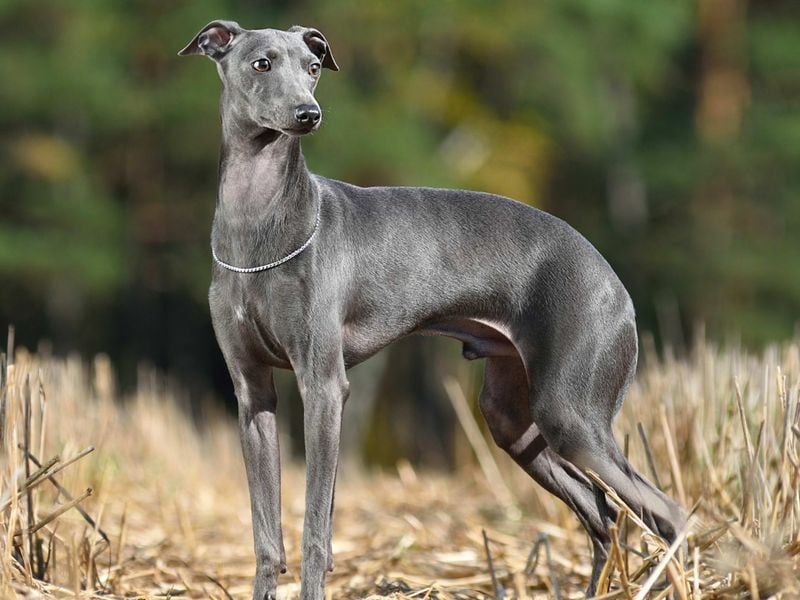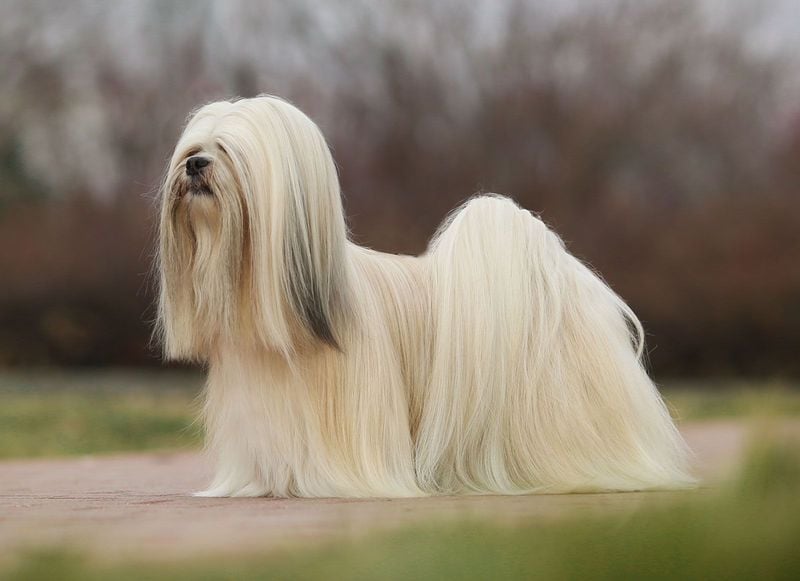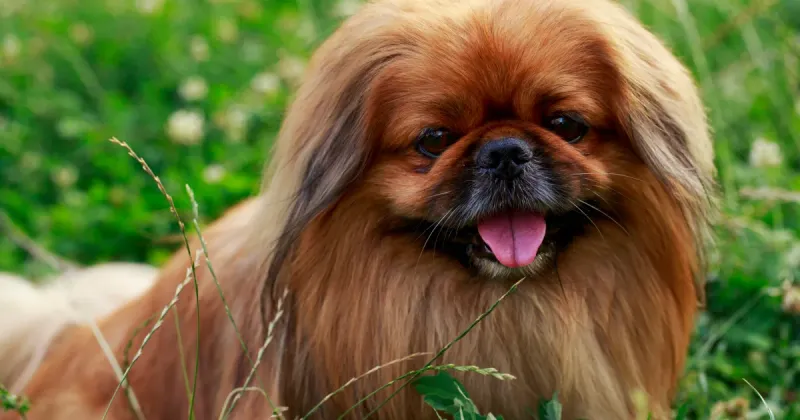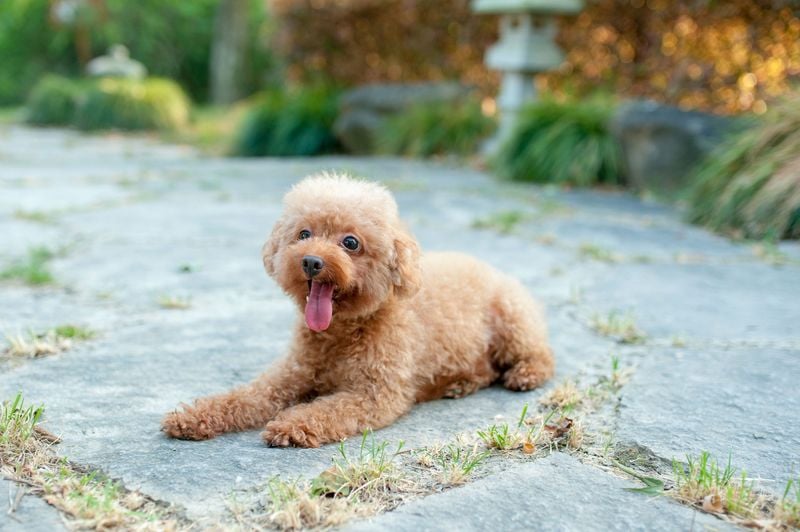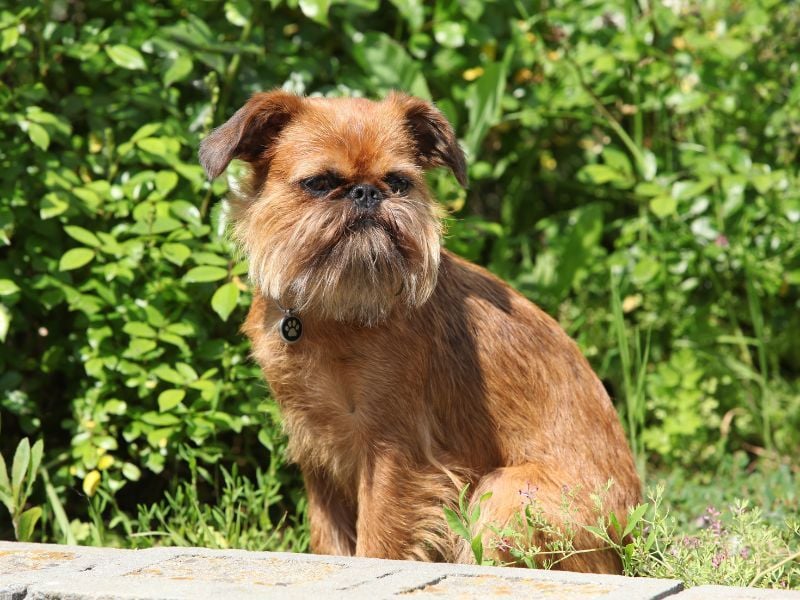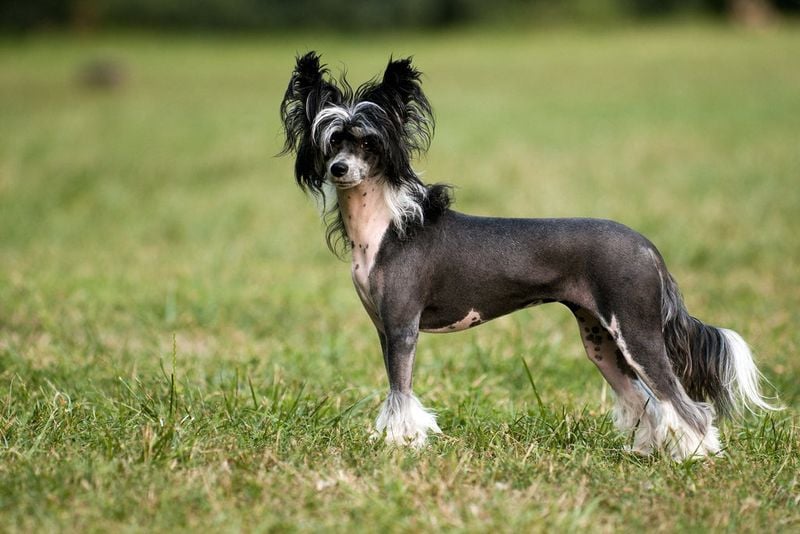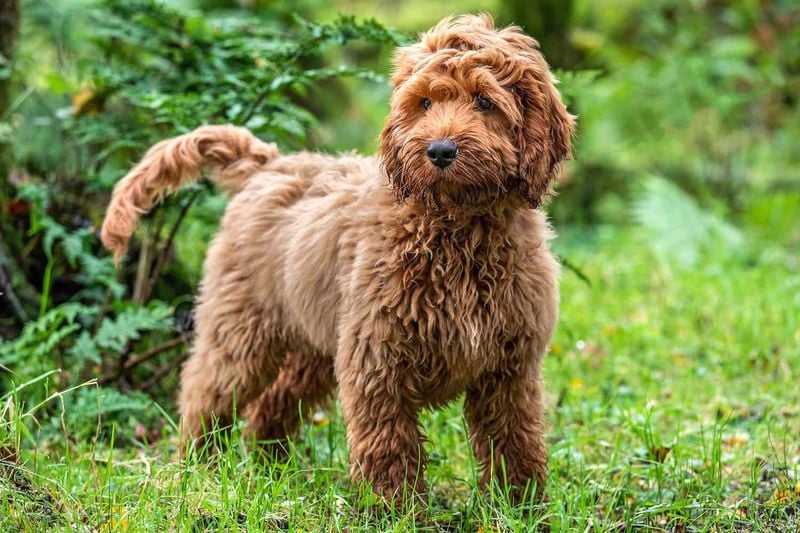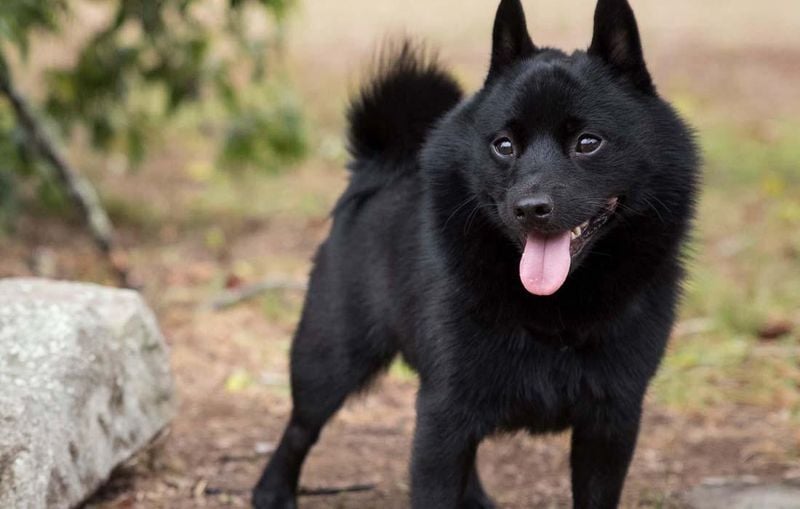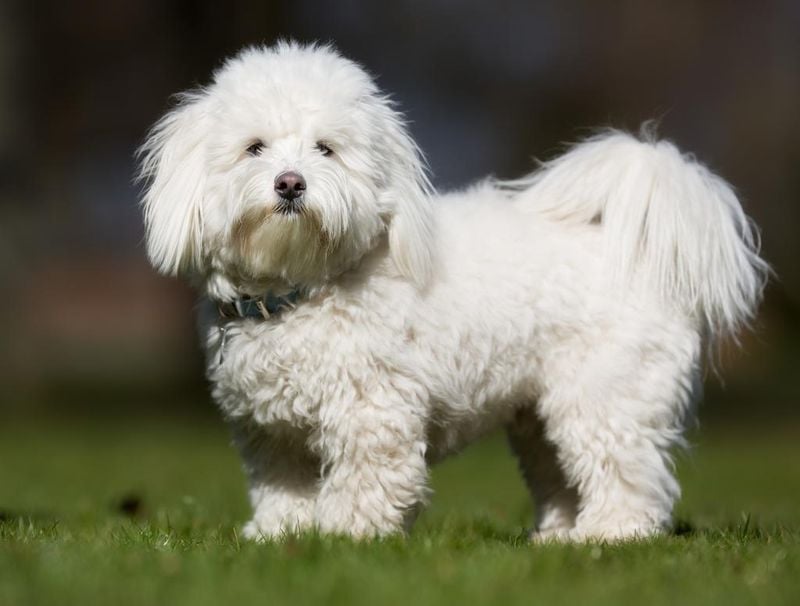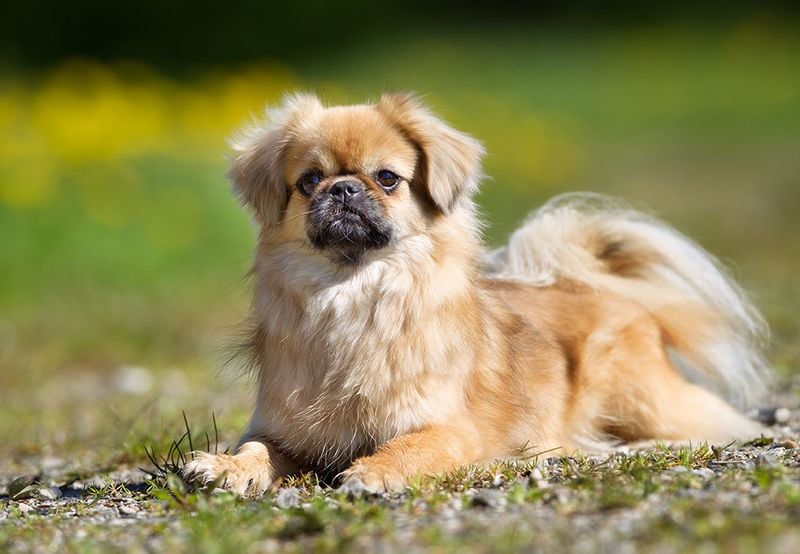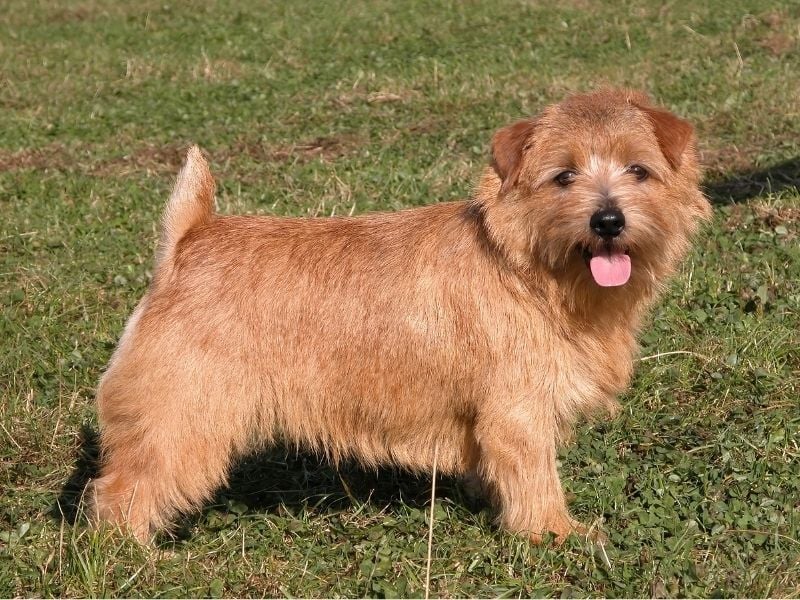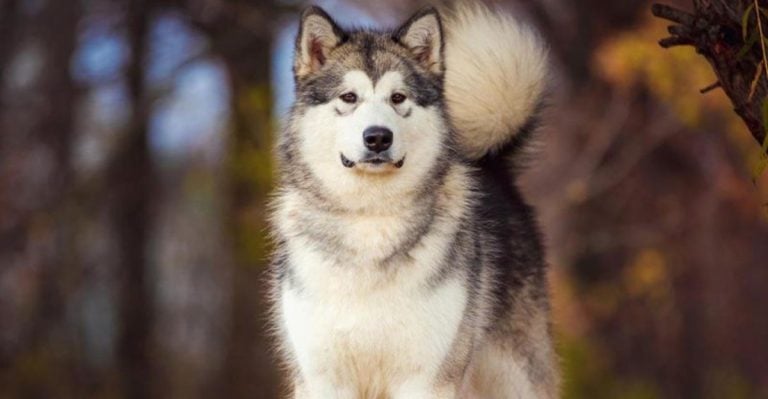25 Small Dog Breeds That Get Along Great with Cats
Finding a dog that plays nice with your feline friend can feel like a challenge. Dogs and cats may have a reputation for being natural adversaries, but the truth is that many dogs can coexist — and even bond — with cats, especially when their personalities align. If you’re a cat owner considering adding a canine companion to the mix, it’s important to choose a breed known for its gentle demeanor, social flexibility, and low prey drive.
Small dog breeds often fit the bill. Their manageable size makes introductions less intimidating for cats, and many of them have affectionate, calm, or playful temperaments that complement feline behavior rather than clash with it. Whether your home already includes a laid-back tabby or a curious kitten, bringing in the right small dog can enhance your household dynamic and add even more joy to your daily life.
From lap dogs that love a quiet snuggle to playful pups that enjoy a good game of chase — without the drama — these pint-sized pooches are some of the best companions for cat lovers. If you’re looking to create a peaceful, multi-pet home, this list of small dog breeds that typically get along well with cats is the perfect place to start.
1. Cavalier King Charles Spaniel
Gentle souls with silky ears, Cavaliers possess a sweet temperament that makes them natural cat companions. Their calm, patient nature means they rarely chase or antagonize feline housemates.
These aristocratic pups were bred for companionship, not hunting, so they lack the strong prey drive that causes problems in other breeds. Many Cavalier owners report their dogs and cats snuggling together during nap time!
With proper introductions, Cavaliers typically form strong bonds with household cats, sharing toys and sleeping spots without conflict. Their adaptable personality makes multi-pet harmony much easier to achieve.
2. Bichon Frise
Cotton-ball fluffy and eternally cheerful, Bichon Frises bring sunshine wherever they go. These sociable pups view everyone – including cats – as potential playmates rather than prey.
Originally bred as companion dogs, Bichons have minimal hunting instincts that might trigger chasing behaviors. Their small size means they’re rarely intimidating to even the most cautious cats.
Bichons adapt beautifully to multi-pet households when introduced properly. Their playful but gentle approach to life makes them excellent candidates for forming genuine friendships with feline family members.
3. Maltese
Regal yet affectionate, Maltese dogs bring centuries of companion-animal excellence to your home. These silky-haired charmers typically form peaceful relationships with cats thanks to their gentle, non-aggressive nature.
Maltese pups rarely display the kind of territorial behavior that creates tension with feline housemates. Their diminutive size puts them on equal footing with most cats, creating a balanced household dynamic.
Ancient Maltese were treasured as lap dogs, not hunters, meaning they lack the instinct to chase smaller animals. Many Maltese owners marvel at how quickly their dogs and cats become comfortable sharing space, toys, and even sleeping spots.
4. Pug
Wrinkly-faced comedians with hearts of gold, Pugs bring laughter and love to multi-pet homes. Their laid-back, somewhat lazy approach to life makes them ideal companions for cats who appreciate personal space.
Pugs rarely have enough energy or interest to chase cats around the house. Their non-threatening size and appearance help cats feel comfortable more quickly than with larger or more intense breeds.
These charming little dogs were bred specifically for companionship in ancient China, not for hunting or herding. A Pug’s primary goal in life is comfort and affection, making them perfectly content to share a sunny spot on the couch with your feline friend.
5. Havanese
Cuba’s national dog brings tropical warmth and friendliness to any household. Havanese pups approach life with a sunny disposition that extends to their feline housemates, rarely seeing them as threats or prey.
Social butterflies by nature, these silky-coated companions thrive on positive relationships with everyone in the home. Their playful but gentle style of interaction typically earns a cat’s approval rather than triggering defensive responses.
Havanese lack the territorial instincts that create tension in multi-pet homes. Many owners report their Havanese and cats forming genuine friendships, playing chase games where roles reverse regularly, showing mutual trust and enjoyment.
6. Shih Tzu
Royal companions with flowing locks, Shih Tzus carry themselves with dignified friendliness. Their history as palace dogs rather than working animals means they lack the hunting drive that triggers cat-chasing in many breeds.
Shih Tzus typically move at a moderate pace that doesn’t alarm or provoke cats. Their non-threatening size and generally peaceful demeanor help create household harmony from day one.
These little lions (their name literally means “lion dog”) often develop special bonds with household cats. Many owners discover their Shih Tzu and cat grooming each other or snuggling together during nap time, having formed a genuine cross-species friendship.
7. Papillon
Butterfly-eared dynamos with surprising intelligence, Papillons may be small but their hearts are mighty. Despite their energetic nature, these tiny dogs typically show remarkable restraint and gentleness around feline companions.
Papillons were bred exclusively as companion animals, never for hunting, which means they lack the intense prey drive that creates problems between dogs and cats. Their lightweight frame means even when they play, they’re unlikely to accidentally harm a cat during interactions.
Smart enough to read a cat’s body language, Papillons quickly learn appropriate boundaries. Many cat-owning Papillon families report their pets developing elaborate play rituals that respect each animal’s comfort level.
8. Japanese Chin
Cat-like in their mannerisms, Japanese Chins bring an elegant, almost feline grace to dog ownership. These oriental treasures actually share many behavioral traits with cats – from their independent streak to their fastidious grooming habits.
Japanese Chins move with a deliberate gentleness that rarely triggers a cat’s defensive instincts. Their calm, thoughtful approach to life creates natural harmony in multi-pet households where chaos might otherwise reign.
Originally bred as companions to Japanese nobility, these dogs understand the art of peaceful coexistence. Many Japanese Chin owners note with amusement that their cats sometimes seem confused about whether this dog is actually a fellow feline in disguise!
9. Boston Terrier
Tuxedo-wearing gentlemen with boundless charm, Boston Terriers bring structured playfulness to multi-pet homes. Their natural politeness extends to respecting a cat’s personal space and boundaries.
Boston Terriers have remarkably low prey drive for a terrier breed, making them less likely to chase or harass feline housemates. Their expressive eyes and attentive ears help them read a cat’s mood and adjust their behavior accordingly.
Known as “American Gentlemen” for good reason, these dapper dogs typically approach cats with respectful curiosity rather than overwhelming energy. Many Boston owners report their dogs and cats developing special games and routines that showcase their unique friendship.
10. French Bulldog
Bat-eared clowns with surprisingly chill personalities, Frenchies rarely have the energy or inclination to harass cats. Their moderate activity level matches well with the average house cat’s preferred pace of life.
French Bulldogs lack the intense prey drive found in many dog breeds. They’re more interested in companionship than chase games, making them excellent candidates for peaceful multi-pet homes.
Sturdy but small, these adorable pups often become unexpected cat allies. Many Frenchie owners share stories of their dogs and cats forming genuine bonds, sharing sleeping spots and even playing gentle games together once trust is established.
11. Miniature Poodle
Einstein-smart with hypoallergenic curls, Miniature Poodles bring thoughtful companionship to multi-pet households. Their remarkable intelligence helps them quickly understand and respect feline boundaries.
Despite their hunting heritage, Mini Poodles typically show restraint around cats once properly introduced. Their trainability means they respond well to guidance about appropriate behavior with feline family members. Athletic yet gentle, these versatile dogs adjust their play style to match their companions.
Many Miniature Poodle owners discover their clever canines developing special relationships with household cats, learning to approach each one according to its unique personality and preferences.
12. Italian Greyhound
Delicate speedsters with surprisingly snuggly souls, Italian Greyhounds might seem like unlikely cat companions. Yet their gentle, sensitive nature makes them excellent housemates for felines when properly introduced.
Despite their racing abilities, Italian Greyhounds typically reserve their sprints for outdoor play sessions. Indoors, they’re often content to lounge in sunbeams – a hobby they happily share with cat friends.
These slender pups crave warmth and often seek cuddling partners. Many Italian Greyhound owners share heartwarming photos of their dogs and cats snuggled together in tight little balls, having found in each other the perfect heating companions.
13. Lhasa Apso
Ancient guardians with flowing locks, Lhasa Apsos bring centuries of wisdom to multi-pet households. Their history as Tibetan sentinel dogs gave them discernment rather than aggression – they know the difference between threats and family members.
Lhasas move with deliberate confidence that rarely triggers a cat’s defensive instincts. Their moderate energy level means they’re not constantly bouncing around in ways that might stress or annoy feline housemates.
Independent yet loyal, these dogs respect personal space – a quality cats particularly appreciate. Many Lhasa owners note their dogs and cats developing comfortable routines, sharing favorite sunning spots throughout the day without conflict.
14. Pekingese
Lion-hearted royalty in tiny packages, Pekingese dogs bring imperial dignity to your home. Their measured movements and calm demeanor rarely trigger a cat’s defensive or flight response.
Pekingese were bred as companions to Chinese emperors, not as hunters or chasers. This heritage means they lack the intense prey drive that creates problems between many dogs and cats.
Naturally regal and somewhat independent, these little lions often develop mutual respect with household cats. Many Pekingese owners find their dogs and cats establishing comfortable territories within the home, occasionally crossing boundaries for friendly interaction without the chaos that more energetic breeds might create.
15. Toy Poodle
Pint-sized geniuses with cotton-candy coats, Toy Poodles bring brains and beauty to multi-pet households. Their exceptional intelligence helps them quickly understand appropriate behavior around feline family members.
Toy Poodles rarely display the rough-and-tumble play style that might intimidate cats. Their lightweight frame and typically gentle approach make them non-threatening playmates for even somewhat skittish kitties.
Highly trainable and eager to please, these tiny poodles respond well to guidance about respecting cat boundaries. Many Toy Poodle owners report their dogs and cats developing special games together, with the poodle intuitively adjusting its play style to match what the cat enjoys.
16. Brussels Griffon
Monkey-faced charmers with old souls, Brussels Griffons bring quirky companionship to cat-inclusive homes. Their expressive faces and soulful eyes seem almost human, reflecting a depth of understanding that extends to their feline housemates.
Brussels Griffons typically display remarkable emotional intelligence when interacting with cats. They read subtle body language cues and adjust their approach accordingly, rarely pushing beyond a cat’s comfort zone.
Small but sturdy, these distinctive dogs often form special bonds with household cats. Many Brussels Griffon owners share stories of their dogs and cats developing unique communication systems, with specific play rituals and mutual grooming sessions that demonstrate genuine cross-species friendship.
17. Chinese Crested
Hairless wonders with punk-rock style, Chinese Cresteds bring unique energy to multi-pet households. Their warm skin and cuddly nature often make them surprising favorites among cats looking for heating companions.
Chinese Cresteds lack the thick coat that sometimes triggers cat allergies or overheating during cuddle sessions. Their gentle, somewhat cautious personality means they rarely overwhelm cats with excessive energy or roughhousing.
Sensitive and intuitive, these distinctive dogs pick up on subtle emotional cues from their environment. Many Chinese Crested owners discover their dogs and cats forming special bonds, often finding them curled together in tight balls during nap time – the cat apparently unbothered by the dog’s unusual appearance.
18. Yorkshire Terrier
Silky-haired divas with surprising courage, Yorkies bring big personalities in tiny packages. Despite their terrier heritage, well-socialized Yorkshire Terriers typically show remarkable restraint around feline housemates.
Yorkies weigh similar to many cats, creating a natural size balance that prevents intimidation. Their human-focused nature means they’re often more interested in their people than in harassing the family cat. Adaptable and quick to learn household rules, these pint-sized pups understand boundaries when properly trained.
Many Yorkshire Terrier owners report their dogs and cats establishing comfortable relationships based on mutual respect, occasionally engaging in gentle play sessions that honor each animal’s comfort level.
19. Cockapoo
Teddy bear-like hybrids with perpetual puppy charm, Cockapoos bring joyful energy to multi-pet homes. Their Cocker Spaniel and Poodle heritage combines to create a friendly disposition that extends to feline family members.
Cockapoos inherit intelligence from their Poodle parentage, helping them understand and respect cat boundaries. Their typically soft mouths from their Spaniel side means gentler play with toys – and less intimidating interactions with cats.
Adaptable and eager to please, these designer dogs quickly learn appropriate behavior around cats when properly guided. Many Cockapoo families share stories of their dogs and cats forming genuine friendships, playing chase games where roles reverse regularly – a sign of mutual trust and enjoyment.
20. Schipperke
Little black foxes with boundless curiosity, Schipperkes bring spunky personality to multi-pet households. Their alert, inquisitive nature is balanced by a surprising capacity for gentleness with feline companions.
Schipperkes were bred as boat dogs and ratters, but their hunting instinct typically doesn’t extend to cats they recognize as family. Their compact size puts them on relatively equal footing with most cats, creating balanced household dynamics.
Intelligent and observant, these distinctive dogs quickly learn household rules about cat interactions. Many Schipperke owners discover their dogs and cats developing mutual respect, often becoming playmates or nap buddies once they’ve established comfortable boundaries.
21. Pomeranian
Fluffy foxes with superstar personalities, Pomeranians pack tremendous charm into tiny packages. Their cotton-ball appearance and cheerful demeanor often win over even the most discriminating cats.
Pomeranians typically weigh less than many adult cats, creating a natural size balance that prevents intimidation. Their playful but gentle approach to life makes them excellent candidates for forming genuine friendships with feline family members.
Alert and attentive, these little puffballs quickly learn to read a cat’s mood signals. Many Pomeranian owners share adorable photos of their dogs and cats sharing favorite sunning spots or cuddling together during nap time, having formed a bond based on mutual comfort and companionship.
22. Coton de Tulear
Cotton-ball fluffballs with sunny dispositions, Coton de Tulears bring island charm to multi-pet households. Their history as companion dogs rather than hunters means they lack the intense prey drive that creates tension with cats.
Cotons move with a gentle, almost floating gait that rarely triggers a cat’s defensive instincts. Their non-threatening approach and generally peaceful demeanor help create household harmony from the first introduction.
Naturally adaptable and eager to please, these Madagascar natives quickly learn appropriate behavior around cats. Many Coton owners marvel at how their dogs and cats become comfortable sharing space, toys, and even sleeping spots, forming genuine cross-species friendships that last a lifetime.
23. Tibetan Spaniel
Lion-hearted watchdogs with ancient wisdom, Tibetan Spaniels bring centuries of companion experience to your home. Their history as monastery dogs gave them discernment rather than aggression – they know family from foe.
Tibetan Spaniels move with a confident but gentle presence that cats typically find non-threatening. Their moderate energy level means they’re not constantly bouncing around in ways that might stress or annoy feline housemates.
Naturally reserved yet affectionate, these dogs respect personal boundaries – a quality cats particularly appreciate. Many Tibbie owners note their dogs and cats developing comfortable routines, sharing favorite resting spots throughout the day without conflict.
24. Norfolk Terrier
Pint-sized workers with hearts of gold, Norfolk Terriers bring cheerful energy to multi-pet households. Despite their terrier heritage, well-socialized Norfolks typically show remarkable restraint around feline family members.
Norfolk Terriers were bred to work alongside humans rather than as independent hunters. This cooperative nature extends to their relationships with household cats when properly introduced during puppyhood.
Sturdy but small, these adorable dogs often become unexpected cat allies. Many Norfolk owners share stories of their terriers and cats forming genuine bonds, sharing sleeping spots and even playing gentle games together once trust is established and boundaries are understood.
25. Dachshund (Miniature)
Sausage-shaped charmers with surprising snuggle potential, Miniature Dachshunds make excellent cat companions when properly socialized. Their distinctive body shape actually works in their favor – their low stature appears less threatening to many cats.
Miniature Dachshunds typically move at a moderate pace that doesn’t trigger a cat’s chase instinct. Their smaller size compared to standard Dachshunds creates a better physical balance with most household cats.
Famous for their burrowing habits, these little hounds often become unexpected nap partners for heat-seeking cats. Many Mini Dachshund owners discover their dogs and cats sharing blankets and beds, having found in each other the perfect warming companions during chilly evenings.

